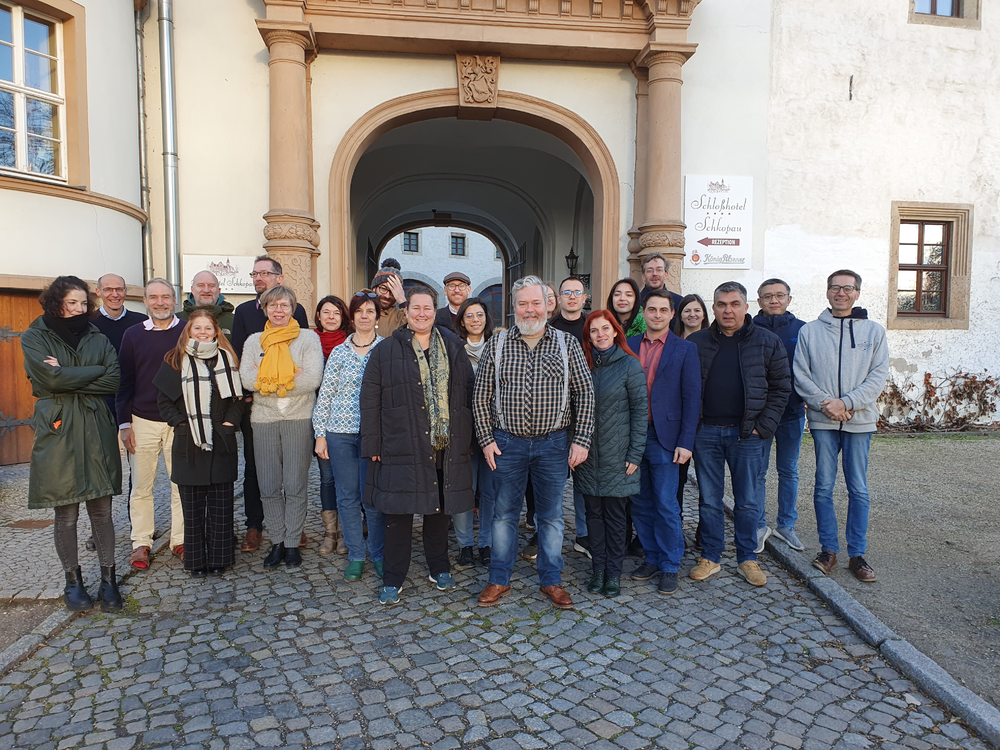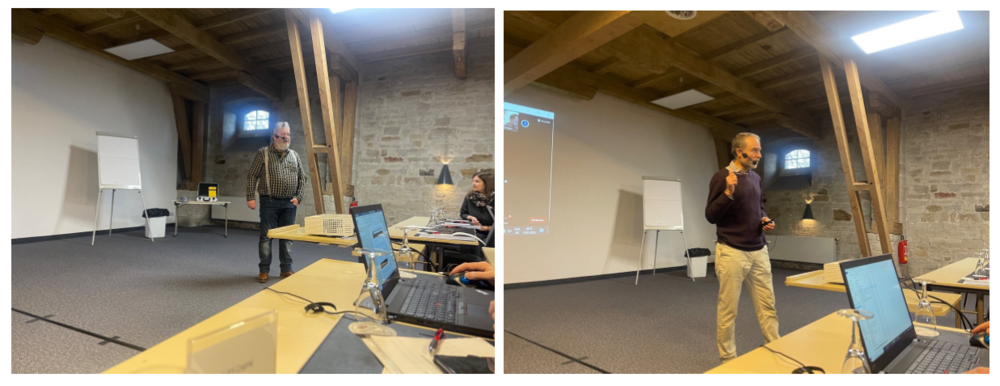Giving Beekeeping Guidance by cOmputatiOnal-assisted Decision making
Partners gathered in Halle for B-GOOD's 8th Consortium Meeting
Project partners and multi-actor forum members of the B-GOOD project met up on the 16th and 17th of January 2023 in Schkopau (Halle), Germany. The two-day event was hosted by project partner the Martin Luther University of Halle-Wittenberg (MLU) and entailed informative presentations, in-depth discussions, workshops, as well as an overview of the projects’ developments and expected outcomes. The first day of the event invited B-GOOD beekeepers to share their experiences, while the second day was dedicated to internal project meetings. The hybrid format chosen for the meeting was effective in promoting discussions amongst partners, both on-site and online.

The event began with a warm welcome by local organiser Robert Paxton of MLU, followed by a short overview of the project and its main goal to assist beekeepers in keeping their colonies healthy by coordinator Prof. Dirk de Graaf of Ghent University and a tour de table.

On day 1, beekeepers and researchers first joined in a sustainable beekeeping workshop, organised jointly by Wim Verbeke & James Henty Williams. The workshop was divided in 3 parts and discussed 3 types of beekeepers - hobbyist, professional & semi-professional with the goal of capturing the key social benefits and impacts.

The first part of the workshop was focused on the economic situation of hobby beekeepers. Participants discussed the environmental side, considering the global carbon footprint and aiming to find ways that hobby beekeeping can have a positive influence. Part two was dedicated to professional beekeepers, exploring the problems and challenges they face. Furthermore, it looked into the main revenues and costs, as well as their influence on the environment. Finally, the semi-professional beekeepers were targeted.
In parallel, project partner dr. Coby Van Dooremalen of Wageningen University conducted her hybrid Data Cleaning workshop.
After the successful workshops, the day continued with presentations from our partners.
Some highlights of the presentations include:
- Project partner Alex Giurgiu of the University of Agricultural Sciences and Veterinary Medicine Cluj-Napoca talked about the progress of the Transylvanian mini-apiary over 2022.
- Zeynep Ulgezen of Wageningen University presented us the results from a study using data collected from 15 colonies in the Netherlands with the BEEP bases. The experiment explores the effects of stress on brood rearing, nest emergence and reproduction.
- Wim Verbeke of Ghent University gave an overview of the results from a survey, answering this question: how do beekeepers perceive and experience climate change?
- Ugoline Godeau of INRAE explained how to choose the correct sample size to detect and quantify viruses in colonies.
- Martin Bencsik of Trent University showed us an innovative method for non-invasive measurement of honeybee colony mobility and restfulness without opening the hive.
The day finished with an open session for additional questions and discussions, followed by private talks between the coordinator and the representatives of each partner institute about the final review period, their tasks and responsibilities.
On the second and final day, all B-GOOD partners' most recent activities were covered, along with their progress and future goals. Prior to the work package presentations, coordinator Prof. Dirk de Graaf provided a brief summary of the outcomes and timeline for each. Internal management meetings, networking with partners, and enthusiastic conversations about the project's successes, including discussions about future plans, filled the day.
Following a fruitful Consortium Meeting, we are eager to get together once again for our last meeting before the project is completed.